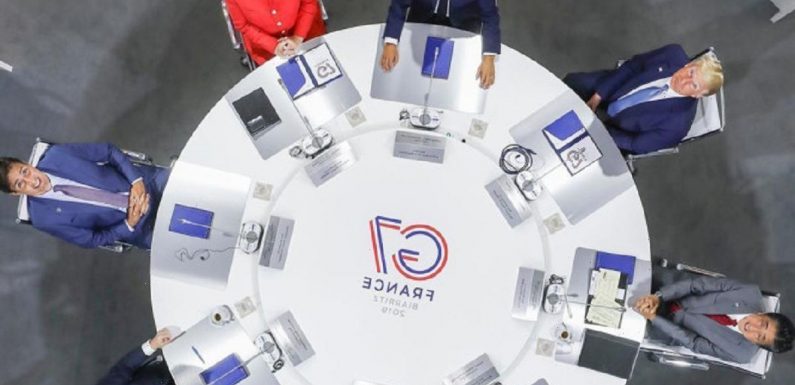
THE Group of Seven – also known as the G7 – is an informal group of the wealthiest democracies in the world.
Leaders from some of the biggest world economies – Canada, France, Germany, Italy, Japan, the United Kingdom and the United States – meet at summits to discuss current issues.
What is the G7?
Also known as the Group of Seven, these countries are seven of the largest economies of the world.
Together, they represent more than 62 per cent of the global net wealth ($280trillion).
The group was founded in the early 1970s as the seven countries discussed concerns about the collapse of the oil industry.
Since then, 43 summits have been held across the globe as members discuss everything from the environment to the economy.
The group was previously known as the G8 and counted Russia among its members, but Russia has been excluded since annexing the Crimean Peninsula from Ukraine in early 2014.
Which countries are members?
The seven members are:
- Canada
- France
- Germany
- Italy
- Japan
- United Kingdom
- United States
How often are summits held?
Summits are held annually, and hosted on a rotation basis by the group's members.
The 2021 summit is being held in Cornwall in June.
The 2018 summit was hosted by Canada in Quebec from June 8-9.
The 45th G7 summit was from August 24-26, 2019, in Biarritz in Nouvelle-Aquitaine, France.
What does the group do?
The Group of Seven (G7) is an informal grouping of seven of the world’s advanced economies, as well as the EU and European Commission.
It offers the leaders of these nations the chance to come together and tackle the most challenging global issues of the time.
In the last 40 years, the G7 claims to have "strengthened security policy, mainstreamed climate change and supported disarmament programmes".
In 2019, the UK became the first major economy to pledge to cut fossil-fuel emissions to zero by 2050.
What criticisms have been made of the G7?
G7 gatherings tend to attract thousands of protesters, and it is protested by thousands every year.
In 2019, water cannons and tear-gas was used to disperse protesters.
Thousands of anti-globalisation activists, Basque separatists and 'yellow vest' protesters joined forces to march on the summit.
US protesters are prominent in a camp set up on the border between Spain and France.
In 2018, protest groups in Quebec focused on global trade, the environment, migration, aboriginal rights and a number of other issues.
A coalition organised "a mass demonstration against the G7, capitalism, patriarchy, colonialism, racism and borders".
Many protesters claim the G7 – which has no representative from any African, Russian or Middle Eastern nation – is completely outdated.
Protest groups also use the worldwide platform as a stage to lobby and campaign on issues that are important to them.
Source: Read Full Article

